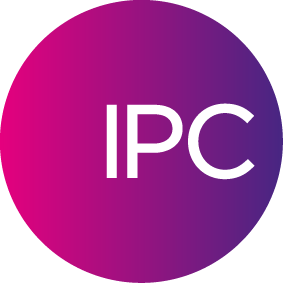By Maureen Faulkner, Senior Manager, Sales Americas , IPC
On December 4, Waters Technology organized a panel discussion of senior female leaders in the finance industry to explore and promote female leadership for an equal future. The panel included the following experts:
Host and moderator: Terry L Keebaugh, Business Development Executive, Banking and Financial Services, Tata Consultancy Services Limited
Contributors:
- Colleen Coda, Managing Director, The Blackstone Group
- Alla Whitston, Managing Director, Chief Technology Officer, Bank of America
- Ruth MacQuiddy, Technology Strategist, Deutsche Bank Labs, Strategy & Innovation, Deutsche Bank Innovation Labs
Upon entering the event, I was excited to see it had attracted a wide range of attendees that were all there to participate and learn more about how we can collectively work to promote female leadership. As the discussion began amongst the contributors, one topic that kept coming up was equating the interplay of women and men in the workplace to basic biology. Research shows there are extremely positive effects and results to diversity being present across many platforms. If we were to just look at diversity outside of the industry, the diversity of men and women in the biological sense helps the world to thrive. If we then apply this understanding to the financial industry, wouldn’t this also be better for everyone – to help the industry thrive? Women should be looked at as an undervalued asset. This idea is not so much to commoditize or actually put a “value” on women, but to instead use financial terms to explain that undervalued assets should be sought after. In addition, metrics show that companies that hire and promote women at a faster pace do better (tying diversity to thriving). Taking the discussion a step further, the panelists were very conscious of extending the notion of diversity beyond race and gender. Diversity brings difference in experiences to the table, which spurs better discussions, which spurs better ideas which in turn can spur innovation that may not have happened if all same minded or like people are involved.
Another topic I found interesting and challenging all at the same time was how to attract, promote and retain female talent in the technology and data industry. The statistics I heard mentioned were: 50% of women out of high school are interested in the technology field, however by college the statistic drops to 30%, and by the time they join the workforce it is much less. Clearly, the overall shortage of women in the industry itself doesn’t help in fixing the diversity issue. What was very clear though was that there was no real consensus on how to fix this. One suggestion made was that during the hiring process, women should be at least 50% of the pool if not higher. Another statistic/metric stated was that if the pool of candidates is not slanted towards women (i.e., 60%+), then the likelihood of a women being hired is minimal. However, the panelists and audience agreed that the talent of the pool and candidates must be clearly weighted as well.
The third topic, which incited some debate among the panelists, was mentorship vs. sponsorship. The debate was centered around mentorship not being as effective as sponsorship, and further sponsorship being seen as the way forward. The example provided was whenever you walk into a room for a meeting – male, female, manager, VP, executive, etc. – make sure everyone participates. One panelist shared her story of a male boss/sponsor that didn’t let the mostly male team dominate the conversation in any meeting, but gave everyone the opportunity to talk and, more importantly, participate (providing diverse views or thoughts from all parties). The panelist explained that she felt very lucky to have had that experience and how much this has impacted their team’s success which lead to overall company success. This ties back to the comment made before – diversity brings differing views, spurs discussions spurs innovation.
These were just some of the great takeaways from the event. I found all the contributors to be insightful. If you would like to learn more about women in the workplace, I noted some of the reading suggestions and organizations referenced by the group:
- Catalyst.org: A global nonprofit that helps build workplaces that work for women
- Center for Talent Innovation (Sylvia Ann Hewlett): Promotes getting a sponsor rather than a mentor
- Lean in: Women, Work, and the Will to Lead by Nell Scovell and Sheryl Sandberg
© 2017 IPC Systems, Inc. All Rights Reserved. The contents of this publication are intended for general information purposes only and should not be construed as legal or regulatory advice.

